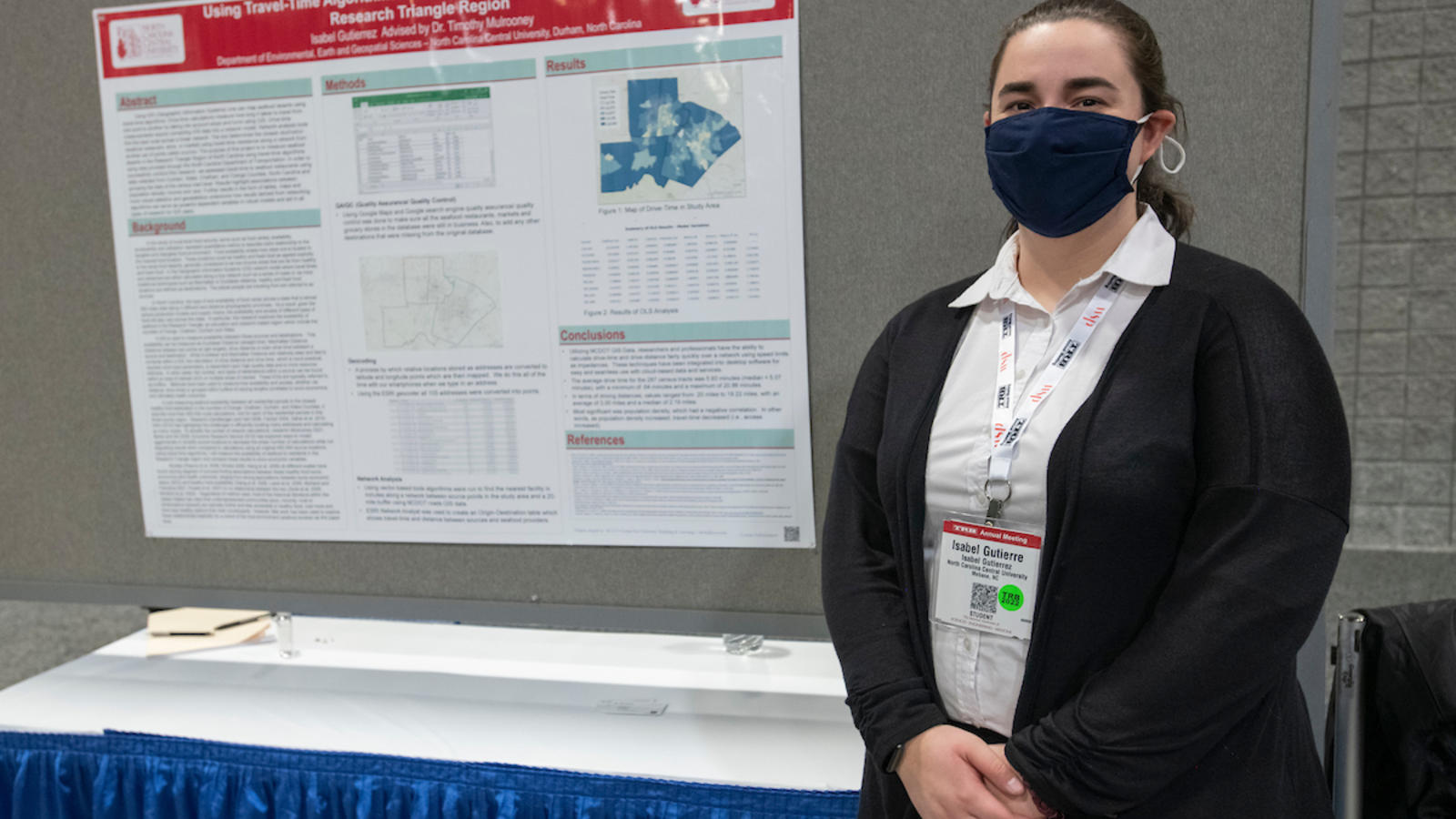North Carolina Central University (NCCU) graduate student Isabel Gutierrez was recently selected for the Transportation Research Board (TRB)’s 2022 class of Minority Student Fellows.
Gutierrez is among 20 students selected from Minority-Serving Institutions across the nation for the program, which seeks to increase the number of underrepresented minorities in the transportation field and in TRB activities. The program also funds students to attend and present their research at the TRB Annual Meeting and help them engage in the board’s network of transportation professionals.
“TRB is pleased to welcome the 13th cohort of Minority Student Fellows. Since 2010, over 200 scholars have come through the program to present their research and participate in all aspects of our annual meeting,” said Neil Pedersen, executive director of TRB. “These students have benefitted not only from presenting their research, but also from networking with and learning from the top transportation researchers and professionals in the world.”
Gutierrez, who is pursuing a master’s degree in earth sciences, is excited to be a part of the program and to have presented her research at TRB’s annual meeting in January 2022. With guidance from adviser Timothy Mulroney, Ph.D., associate professor in NCCU’s Department of Environmental, Earth and Geospatial Sciences, Gutierrez’s poster presentation, entitled “Using Travel-Time Algorithms to Measure Seafood Deserts in the Research Triangle Region,” focused on food insecurity solutions in underserved communities.
“Food deserts are areas that have limited access to nutritional food sources, for example, having to walk 15 minutes to reach your nearest grocery store,” said Gutierrez. “My research found that the average driving time to seafood establishments in the Durham, Wake, Chatham and Orange counties could scale upwards to nearly 19.22 miles and 21 minutes. However, as the population density in these counties increased, it appeared that the travel time to these establishments decreased.”
In preparation for her presentation, she spent eight weeks researching locations of seafood establishments in Durham, Wake, Chatham, and Orange counties, and creating a map outlining the distance of these locations.
“It is my hope that my research will help policymakers develop a better understanding of how the distance of food establishments may impact the nutritional needs of communities,” she added.
Gutierrez has always had a passion for science and through her graduate program, she developed a desire to research food insecurity solutions.
“The inconvenience that food deserts cause within communities needs to be discussed. Many may find themselves in immediate need of food; however, their local grocery store is 30 minutes away.”
After obtaining her graduate degree, Gutierrez plans to pursue a doctoral program in geospatial analytics and further her food desert research.
